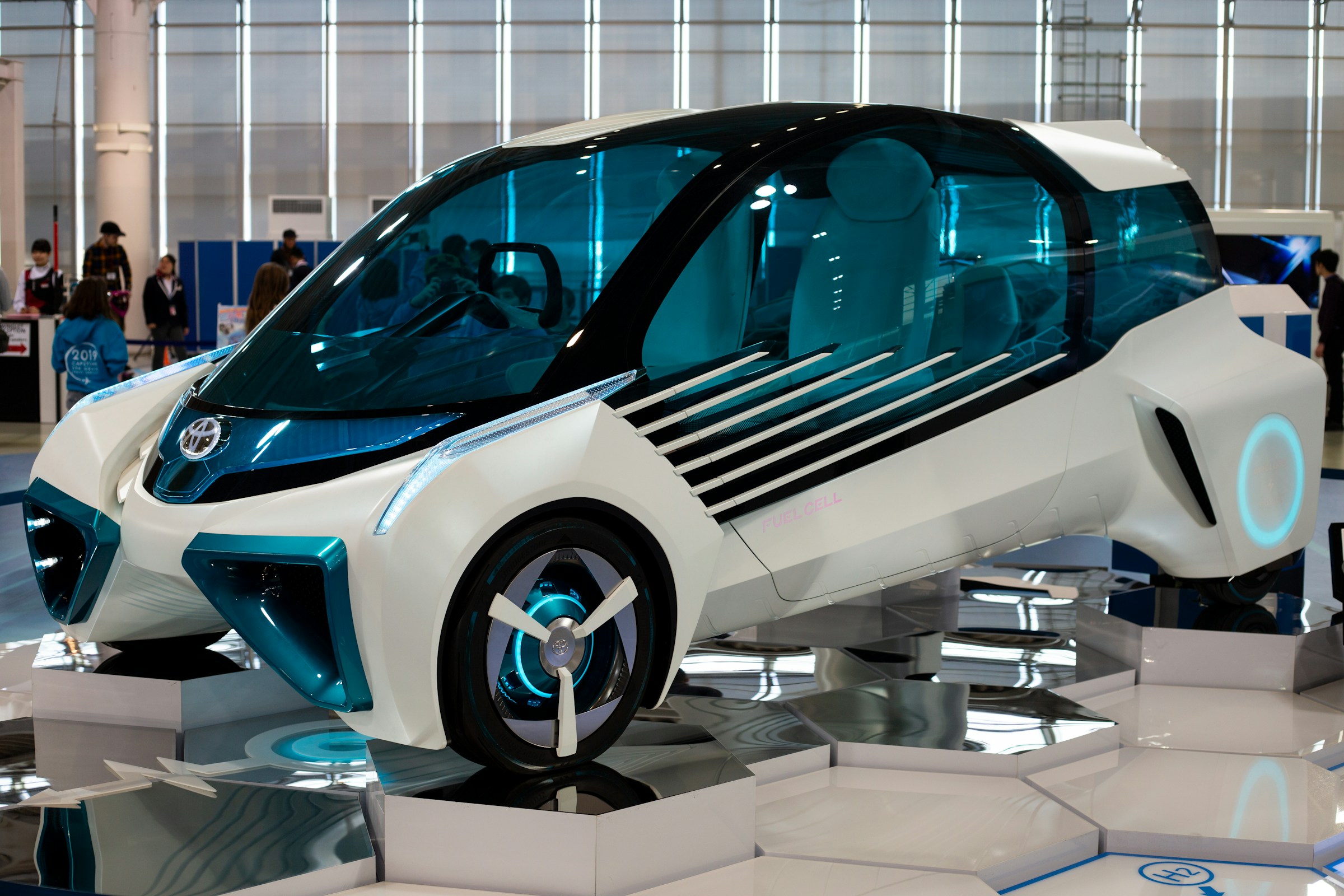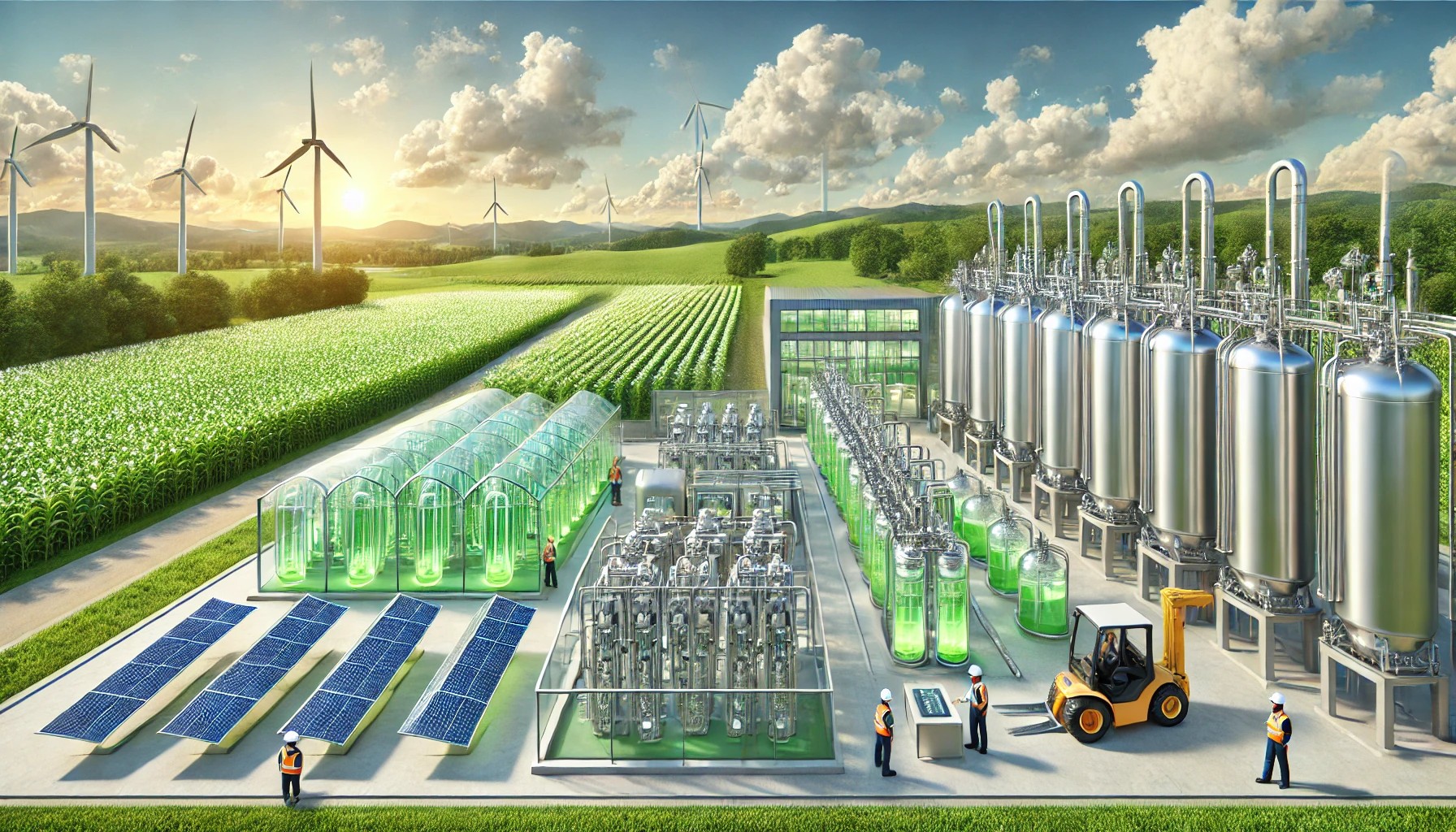In a world increasingly focused on sustainability and reducing carbon emissions, fuel cells are emerging as one of the most promising technologies for a cleaner, more efficient future. These silent, powerful systems are making their way into industries ranging from transportation to energy production, transforming how we think about powering the world around us.
Fuel cells, often seen as the cornerstone of a hydrogen-powered future, are revolutionizing the way we generate and use energy. Unlike traditional combustion engines, fuel cells produce electricity through an electrochemical reaction, emitting only water and heat as byproducts, making them a highly attractive option for sustainable power generation. As global demand for clean energy solutions continues to rise, fuel cell applications are becoming more diverse and essential across industries. From powering electric vehicles to providing backup power for critical infrastructure, the versatility of fuel cells is fueling their rapid adoption. This article explores the key areas where fuel cells are making an impact, highlighting their potential to reshape the future of energy, transportation, and beyond.
What Are Fuel Cells?
Fuel cells are devices that generate electricity through an electrochemical process, using hydrogen and oxygen as the primary reactants. Unlike conventional combustion engines, which burn fuel to produce energy, fuel cells generate electricity without any harmful emissions, making them an environmentally friendly alternative. In a typical fuel cell, hydrogen is fed into the anode side, where it splits into protons and electrons. The protons pass through an electrolyte to the cathode side, while the electrons create an electric current that can be used to power devices. Oxygen, usually from the air, is introduced to the cathode side, where it combines with the protons to form water, the only byproduct.
There are several types of fuel cells, each with its own characteristics and applications. The most common include:
- Proton Exchange Membrane (PEM) Fuel Cells: These are ideal for transportation applications due to their quick startup and high efficiency. PEM fuel cells are typically used in hydrogen-powered vehicles, including fuel cell electric vehicles (FCEVs).
- Solid Oxide Fuel Cells (SOFC): Operating at high temperatures, SOFCs are suitable for stationary power generation, providing a reliable source of electricity for industrial and residential applications.
- Alkaline Fuel Cells (AFC): These cells use an alkaline electrolyte and are often used in space missions due to their high efficiency and reliability.
- Phosphoric Acid Fuel Cells (PAFC): Often employed for stationary applications, PAFCs offer a reliable and efficient power source for commercial buildings and backup power systems.
Key Advantages of Fuel Cells
Fuel cells offer several advantages over traditional power generation methods. One of the most significant benefits is their high efficiency. Since fuel cells convert chemical energy directly into electrical energy, they typically achieve higher efficiency than conventional combustion engines, which waste a considerable amount of energy as heat. Additionally, fuel cells produce minimal emissions, with water being the main byproduct, making them an attractive option for reducing the carbon footprint in various industries. Their versatility also extends to multiple applications, from transportation to power generation, contributing to a sustainable energy future.
Fuel Cell Applications in Transportation
Automotive Industry
Fuel cell technology is making waves in the automotive sector, with fuel cell electric vehicles (FCEVs) gaining traction as a zero-emission alternative to conventional vehicles. These vehicles run on hydrogen fuel, which powers the fuel cells to generate electricity that drives the motor. One of the primary benefits of fuel cell vehicles is their ability to refuel quickly, offering a distinct advantage over battery electric vehicles (BEVs) that require long charging times. However, the widespread adoption of FCEVs is still hindered by the limited availability of hydrogen refueling stations and the high cost of fuel cell systems. Despite these challenges, major automakers are investing in fuel cell technology, and progress continues toward improving efficiency and reducing costs.
Public Transport
Fuel cells are also revolutionizing public transportation. Buses, trains, and even ships are being powered by hydrogen fuel cells, significantly reducing emissions in urban areas. Hydrogen-powered buses, for instance, are already operating in several cities around the world, offering a clean alternative to traditional diesel-powered buses. This shift is part of the broader movement towards zero-emission public transport, which aims to reduce air pollution and promote sustainability. As hydrogen infrastructure improves, we can expect even greater adoption of fuel cell technology in mass transit systems globally.
Aerospace and Aviation
The aviation industry is another area where fuel cells are beginning to show promise. Fuel cells in drones are already used for longer flight durations and quieter operation, while research into hydrogen-powered commercial aircraft is gaining momentum. If successful, fuel cell technology could transform the aviation sector by enabling more sustainable flight options, potentially reducing the industry’s reliance on fossil fuels. The potential for sustainable aviation is vast, with fuel cells offering a cleaner alternative to traditional jet engines, making air travel greener in the future.
Fuel Cells in Industrial Applications
Backup Power Systems
Fuel cells are increasingly being used for backup power in critical infrastructure, providing a reliable and clean alternative to diesel generators. Industries such as data centers, hospitals, and telecommunications rely on uninterrupted power, and fuel cells offer an efficient solution to ensure operations continue during power outages. Unlike traditional backup power systems, fuel cells are quieter, produce fewer emissions, and require less maintenance, making them an ideal choice for sensitive environments.
Forklifts and Material Handling Equipment
In the industrial sector, fuel cells are being integrated into forklifts and material handling equipment in warehouses and factories. Fuel cell-powered forklifts offer a number of benefits, including faster refueling times compared to battery-powered models and the ability to operate continuously without the need for downtime to recharge. These advantages make fuel cell technology a strong contender in improving operational efficiency and reducing costs in logistics and manufacturing industries.
Residential and Commercial Energy Solutions
Home Energy Systems
Fuel cells are also being used for residential energy generation. Small-scale fuel cell systems can provide homeowners with a reliable, clean, and efficient source of electricity, potentially reducing their reliance on the grid. These systems can produce electricity for homes while also providing heat, creating a combined heat and power (CHP) system that enhances energy efficiency. For many, this means reduced energy costs and increased energy independence, with the added benefit of sustainability.
Commercial Buildings
In commercial applications, fuel cells are being used to reduce the carbon footprint of buildings. High-energy-demand areas such as shopping malls, hotels, and office buildings benefit from fuel cells due to their ability to provide continuous power with minimal emissions. Fuel cell systems in commercial buildings can reduce reliance on the grid and lower operational costs while enhancing the building’s environmental sustainability.
Fuel Cells in the Military and Defense
Fuel cells have strategic applications in the military and defense sectors, providing portable power for soldiers in remote locations and fueling advanced technologies such as surveillance equipment and communication systems. Military-grade fuel cells offer several advantages, including high energy density, quiet operation, and the ability to function in harsh environments. Fuel cells are becoming an essential component in ensuring that military operations run smoothly without relying on traditional, cumbersome power sources.
Fuel Cells in Remote and Off-Grid Areas
Fuel cells are also proving to be invaluable in remote and off-grid areas, where access to traditional power grids is limited or non-existent. In places where reliable electricity is scarce, fuel cells offer a clean, reliable energy solution. They are particularly useful in disaster relief situations, providing power for emergency operations and communications when traditional infrastructure is unavailable.
Future Prospects of Fuel Cells
The future of fuel cell technology holds immense potential across various sectors. Innovations are on the horizon, with advancements in integrating fuel cells with renewable energy sources such as solar and wind power to create hybrid systems that can store and deliver energy more effectively. Miniaturization of fuel cells is also a key area of focus, allowing them to be used in smaller devices and applications. However, challenges such as cost, infrastructure development, and scalability must be addressed to ensure fuel cell technology can reach its full potential.
Conclusion
From transportation to power generation, fuel cells are rapidly making their mark across a wide range of industries. Their ability to provide clean, efficient, and sustainable energy solutions is reshaping the way we approach energy consumption and production. As technology continues to evolve, fuel cells will likely play an even more significant role in the transition to a cleaner, greener future.
Frequently Asked Questions (FAQs)
What is a fuel cell and how does it work?
A fuel cell is an electrochemical device that converts chemical energy into electricity through a reaction between hydrogen and oxygen. The process produces electricity, heat, and water as byproducts, making it an environmentally friendly energy solution.
What are the different types of fuel cells?
There are several types of fuel cells, each suited for different applications:
Proton Exchange Membrane (PEM): Used primarily in transportation, such as fuel cell electric vehicles (FCEVs).
Solid Oxide Fuel Cells (SOFC): Suitable for stationary power generation.
Alkaline Fuel Cells (AFC): Commonly used in space applications.
Phosphoric Acid Fuel Cells (PAFC): Used for commercial and industrial applications.
What are the main benefits of fuel cells?
The main advantages of fuel cells include high efficiency, low emissions (only water and heat are produced), sustainability, and the ability to be used in various applications like transportation, backup power, and residential energy systems.
How are fuel cells used in the automotive industry?
In the automotive industry, fuel cells are used in fuel cell electric vehicles (FCEVs), which use hydrogen to generate electricity and power an electric motor. These vehicles offer zero-emission transportation, with the primary benefit being fast refueling times compared to battery-electric vehicles.
Can fuel cells power public transportation?
Yes, fuel cells are being used to power buses, trains, and ships in public transportation. These applications help reduce emissions, contributing to cleaner and more sustainable urban environments.
Are fuel cells used in the aerospace industry?
Fuel cells are used in drones and are being researched for potential use in hydrogen-powered commercial aircraft. Their efficiency and low emissions make them an attractive option for sustainable aviation.
Can fuel cells be used for backup power?
Yes, fuel cells provide reliable backup power for critical infrastructure like data centers, hospitals, and telecommunications networks. They offer a cleaner, more efficient alternative to diesel generators, with fewer emissions and lower maintenance needs.
Are fuel cells used in residential homes?
Fuel cells can be used in residential energy systems, providing homes with clean, efficient electricity and heat. These home fuel cell systems reduce energy costs, increase energy independence, and contribute to sustainability.
How do fuel cells benefit commercial buildings?
In commercial buildings, fuel cells help reduce the carbon footprint by providing a reliable, clean source of power. They can also lower energy costs and improve the building’s sustainability, especially in high-energy-demand areas like shopping malls and hotels.
What are the challenges of using fuel cells?
The main challenges include the high cost of fuel cell systems, the need for hydrogen refueling infrastructure, and scalability. Advances in technology and cost reduction are needed to make fuel cells more accessible for widespread use.
How does fuel cell technology support the military?
In the military, fuel cells are used for portable power in remote locations, fueling surveillance equipment, communication systems, and other technologies. They offer advantages like high energy density, quiet operation, and the ability to perform in extreme environments.
Are fuel cells useful for off-grid areas?
Yes, fuel cells provide a clean and reliable power solution for remote and off-grid areas. They are particularly useful in providing energy in disaster relief situations where traditional power grids are unavailable.


